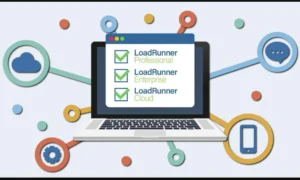Introduction
Getting Project Management Professional (PMP) certification is a significant step in advancing your career. The PMP exam is known for its rigor, testing your knowledge and application of project management principles. In this blog, we’ll explore tips and tricks to guide your preparation for the PMP exam, highlighting valuable resources such as PMP simulators and EDUHUBSPOT Mindset tool.
- Understand the Exam Content Outline:
Familiarize yourself with the PMP Exam Content Outline, a blueprint for the exam provided by the Project Management Institute (PMI). This will serve as the foundation for your study plan.
- Create a Study Plan:
Develop a structured study plan that aligns with the PMP Exam Content Outline. Break down your study sessions into manageable segments and allocate sufficient time for each domain.
- Utilize PMP Simulators:
Leverage PMP simulators to replicate the exam experience. These tools offer realistic practice exams, helping you become familiar with the format, time constraints, and types of questions you’ll encounter.
- Explore EDUHUBSPOT Mindset tool:
EDUHUBSPOT Mindset tool is a valuable resource that focuses on the mindset needed to succeed in the PMP exam. PMP Exam Mindset tool that answers in depth what PMP mindset really means and how to practically implement it while taking a PMP exam. You can practice with the tool to bring perfection in your PMP exam mindset.
- Practice with Realistic Exams:
Invest time in taking realistic practice exams. PMP simulators often provide a variety of questions that closely resemble those in the actual exam, allowing you to assess your readiness and identify areas for improvement.
- Join PMP Exam Preparation Courses:
Enroll in PMP exam preparation courses that offer not only content but also insights into effective exam strategies. Courses can provide structured learning paths and expert guidance.
- Participate in Study Groups:
Engage with fellow PMP aspirants through study groups. Discussing concepts, sharing experiences, and solving problems collectively can offer diverse perspectives and enhance your understanding.
- Stay Updated on Industry Trends:
Project management is a dynamic field. Stay informed about the latest industry trends and updates, as the PMP exam may incorporate new practices and methodologies.
- Allocate Time for Weak Areas:
Identify and allocate extra time to strengthen your understanding of weak areas. PMP simulators often provide detailed performance reports, helping you pinpoint specific knowledge gaps.
- Master Key Formulas:
Focus on mastering key formulas related to cost management, schedule management, and other critical areas. PMP simulators may include questions that require application of these formulas in real-world scenarios.
- Review Ethical Standards:
Dedicate time to understanding and applying ethical standards. PMP simulators often include questions related to ethical decision-making, preparing you for this important aspect of the exam.
- Simulate Exam Conditions:
Replicate exam conditions during your practice sessions with PMP simulators. This will help you get accustomed to the time constraints and build your stamina for the actual exam.
- Maintain a Positive Mindset:
Embrace a positive mindset throughout your preparation. EDUHUBSPOT Mindset tool can provide valuable insights into the right attitude and mindset needed for success in the PMP exam.
Conclusion
Successfully preparing for the PMP exam requires a combination of strategic planning, effective resources, and the right mindset. By incorporating PMP simulators and exploring the insights provided by EDUHUBSPOT Mindset tool, you can enhance your preparation and approach the exam with confidence.
Author: Axiswebart team has 6+ years of experience in writing content on Project Management topics and along with different publications. Also, they are delivering good write-ups on various other projects too.







































